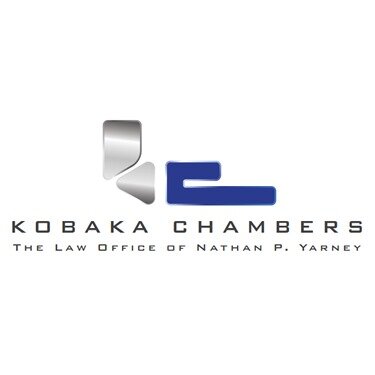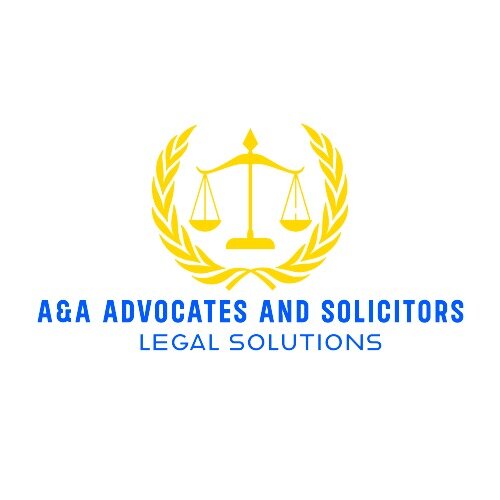Best Hiring & Firing Lawyers in Ghana
Share your needs with us, get contacted by law firms.
Free. Takes 2 min.
Or refine your search by selecting a city:
List of the best lawyers in Ghana
About Hiring & Firing Law in Ghana
In Ghana, the legal framework governing the hiring and firing of employees is primarily established by the Labour Act, 2003 (Act 651), which sets out the comprehensive rights and duties of both employers and employees. The Labour Act aims to ensure fair labor practices and protect the interests of workers, providing guidelines on employment relations, working conditions, termination of employment, and dispute resolution. Employers are expected to adhere to these regulations to foster a fair and productive work environment.
Why You May Need a Lawyer
Throughout the hiring and firing processes, legal complexities may arise that necessitate the intervention of a lawyer. Common situations where legal help might be required include:
- Drafting employment contracts that comply with Ghanaian labor laws.
- Ensuring fair recruitment practices to avoid any form of discrimination or bias.
- Navigating wrongful termination claims or disputes with former employees.
- Understanding and applying redundancy and severance pay guidelines.
- Addressing cases of unfair labor practices or violations of employee rights.
Local Laws Overview
The key aspects of local laws relevant to hiring and firing in Ghana include:
- Employment Contracts: Employers are required to provide written contracts to employees, detailing terms such as job responsibilities, salary, and conditions of service.
- Termination of Employment: Employees can be dismissed with notice, without notice (summary dismissal), or through mutual agreement. Specific notice periods and grounds for termination are outlined in the Labour Act.
- Redundancy: Employers must consult with the affected employee and the Chief Labour Officer before implementing redundancy, providing reasons and calculations for redundancy pay.
- Severance Pay: Conditions for severance pay are specified, primarily focusing on the employee’s length of service and the nature of their dismissal.
- Unfair Dismissal: Employees have the right to challenge dismissals they believe to be unjust or arbitrary through the Labour Commission or the courts.
- Workplace Disciplinary Procedures: Employers must follow specified procedures for addressing misconduct, ensuring fairness and consistency in their application.
Frequently Asked Questions
What are the minimum requirements for an employment contract in Ghana?
An employment contract must include the job title, duties, wages, working hours, leave entitlements, and conditions for termination, among other basics. It should be provided within two months of starting employment.
Can an employer terminate an employee without notice?
Yes, but only under circumstances of serious misconduct or other justified reasons. Otherwise, the appropriate notice period as outlined in the employment contract or the Labour Act must be honored.
What constitutes wrongful termination?
Wrongful termination occurs when an employee is dismissed without valid reason, without following the due process, or in violation of contractual or statutory rights.
How is redundancy handled legally?
The employer must provide notice to the employee and the Chief Labour Officer, justify the redundancy, and offer redundancy pay. Failure to follow these can lead to legal sanctions.
What are unfair labor practices?
These include actions like discrimination, arbitrary dismissal, refusal to collectively bargain, or violating any employee rights as stipulated by the law.
How can disputes regarding hiring and firing be resolved?
Disputes can be addressed through internal company grievance mechanisms, mediation by the Labour Commission, or legal action in court.
What are the penalties for non-compliance with the Labour Act?
Penalties can range from fines, reinstatement of wrongfully terminated employees, compensation for damages, or other legal remedies prescribed by the Labor Commission or courts.
Are probation periods allowed in employment contracts?
Yes, probation periods are allowed and typically do not exceed six months, although extensions can be negotiated between employer and employee.
What protections do employees have against discrimination?
Employees are protected from discrimination based on race, gender, religion, disability, and other protected characteristics, under both the Labour Act and other Ghanaian laws.
How should severance pay be calculated?
Severance pay is generally calculated based on the length of the employee’s service, their salary, and any terms specified in the employment contract or collective agreements.
Additional Resources
- The Labour Department of Ghana provides resources and guidance on employment issues.
- The National Labour Commission offers mediation and arbitration services for employment disputes.
- The Ghana Employers' Association can offer advice and support for businesses on labor issues.
- Legal Aid Ghana offers resources for employees who may need legal assistance but lack the means to hire a lawyer.
Next Steps
If you need legal assistance in matters related to hiring and firing in Ghana, it is advisable to:
- Consult a licensed labor lawyer to understand your rights and obligations.
- Reach out to the Labour Department for guidance on specific cases and procedures.
- Engage with the National Labour Commission if you require mediation or arbitration services.
- Consider joining relevant professional or business associations for ongoing support and resources.
Remember to keep documented records of all employment agreements and communications to support any legal steps you may take.
Lawzana helps you find the best lawyers and law firms in Ghana through a curated and pre-screened list of qualified legal professionals. Our platform offers rankings and detailed profiles of attorneys and law firms, allowing you to compare based on practice areas, including Hiring & Firing, experience, and client feedback.
Each profile includes a description of the firm's areas of practice, client reviews, team members and partners, year of establishment, spoken languages, office locations, contact information, social media presence, and any published articles or resources. Most firms on our platform speak English and are experienced in both local and international legal matters.
Get a quote from top-rated law firms in Ghana — quickly, securely, and without unnecessary hassle.
Disclaimer:
The information provided on this page is for general informational purposes only and does not constitute legal advice. While we strive to ensure the accuracy and relevance of the content, legal information may change over time, and interpretations of the law can vary. You should always consult with a qualified legal professional for advice specific to your situation.
We disclaim all liability for actions taken or not taken based on the content of this page. If you believe any information is incorrect or outdated, please contact us, and we will review and update it where appropriate.
Browse hiring & firing law firms by city in Ghana
Refine your search by selecting a city.

















